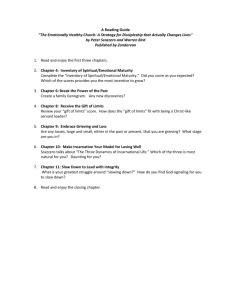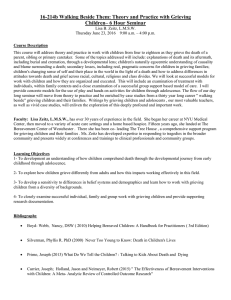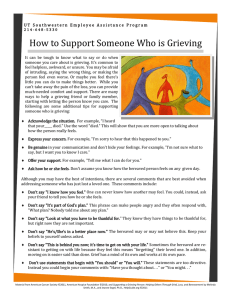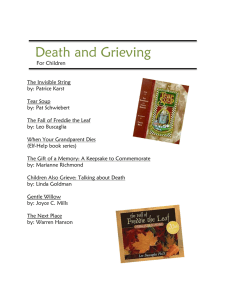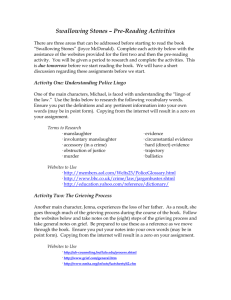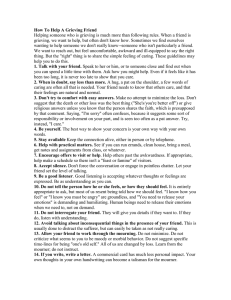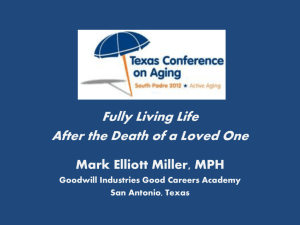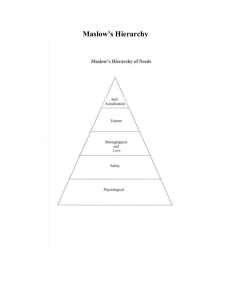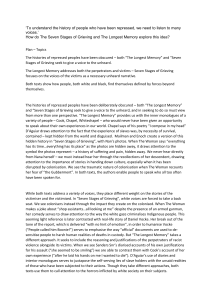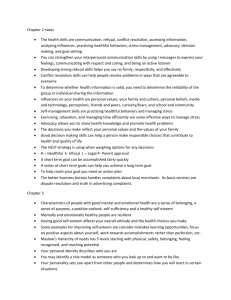Unit 13: Death and Dying
advertisement
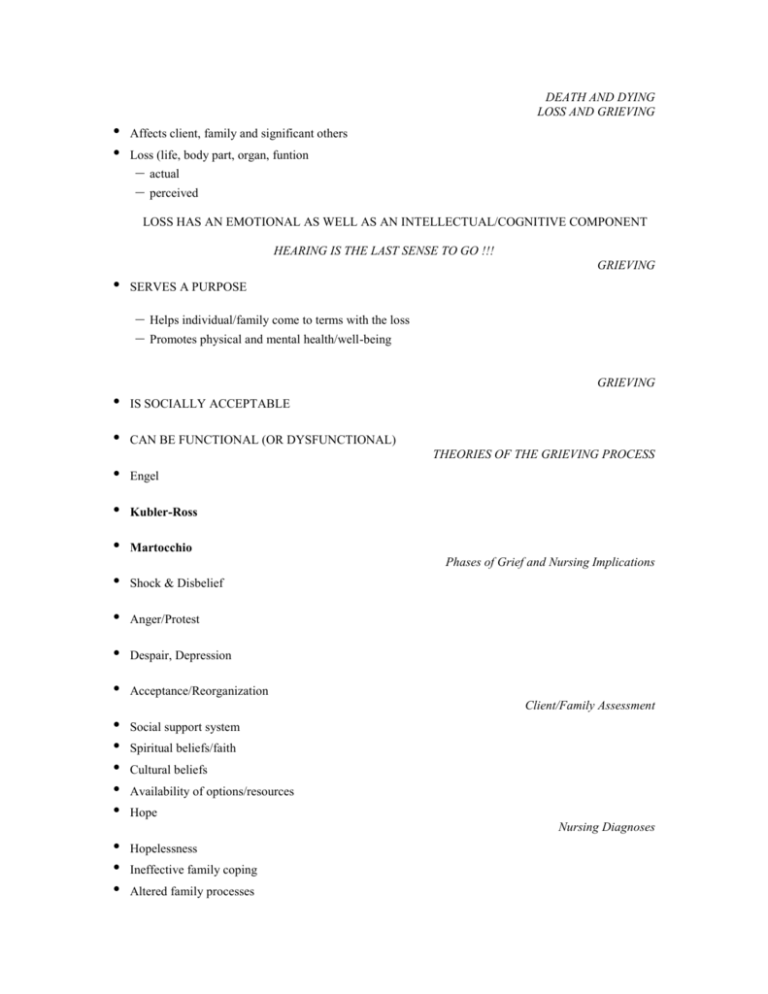
DEATH AND DYING LOSS AND GRIEVING • • Affects client, family and significant others Loss (life, body part, organ, funtion – – actual perceived LOSS HAS AN EMOTIONAL AS WELL AS AN INTELLECTUAL/COGNITIVE COMPONENT HEARING IS THE LAST SENSE TO GO !!! GRIEVING • SERVES A PURPOSE – – Helps individual/family come to terms with the loss Promotes physical and mental health/well-being GRIEVING • IS SOCIALLY ACCEPTABLE • CAN BE FUNCTIONAL (OR DYSFUNCTIONAL) THEORIES OF THE GRIEVING PROCESS • Engel • Kubler-Ross • Martocchio Phases of Grief and Nursing Implications • Shock & Disbelief • Anger/Protest • Despair, Depression • Acceptance/Reorganization Client/Family Assessment • • • • • Social support system Spiritual beliefs/faith Cultural beliefs Availability of options/resources Hope Nursing Diagnoses • • • Hopelessness Ineffective family coping Altered family processes • • • • • Social isolation Spiritual distress Sleep pattern disturbance Altered nutrition Dysfunctional grieving Planning for the client dealing with loss The client will maintain: • • • • • comfort spiritual comfort hope independence personal interaction DEALING WITH DEATH & DYING • THERE ARE NO PERFECT WORDS • WE CAN’T MAKE IT BETTER • THE ONLY WRONG THING TO DO IS TO LEAVE FOR THE CLIENT • • • • • • • Client Needs Sense of Control Touch Listen & Respond Positive Body Language Stop In Deal with Client’s Fears Encourage Hope For The Family • • • • • Encourage Communication Respect Individuality Include Family Encourage Family Members to Say Goodbye Trust Intuition For Yourself • • • • • Take as good care of yourself as of your clients Know that there are times we can no longer do any more about a situation Establish a philosophy of life Educate yourself Be real PLANNING • ORGAN DONATION • ADVANCED MEDICAL DIRECTIVES/ LIVING WILLS • HOSPICE • FUNERAL/MEMORIAL SERVICES
